In the coming weeks, as a complement to our book club discussions about Season Finale: The Unexpected Rise and Fall of The WB and UPN, I will be counting down the top 30 shows from the combined history of WB and UPN.
This list does not include shows that were originally aired on other networks but were later added to the WB or UPN lineup, such as Grounded for Life or Sister, Sister.
Last week, I began the countdown with shows ranked from 30 to 25, and today, we’ll be delving into the shows that occupy the 24th to 16th positions.
24. Moesha (UPN, 1996–2001): This sitcom stands out as the quintessential show of UPN’s formative years and holds the distinction of being one of its most enduring series.
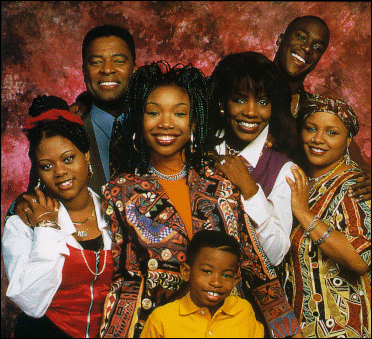
It earns its place on this list not only for its longevity but also for its entertainment value. It’s worth mentioning that I personally didn’t watch it much, as you might have guessed.
23. Popular (WB, 1999–2001): Ryan Murphy’s initial foray into television will always be remembered for establishing the Murphy Trajectory.
It began with a daring, captivating, and slightly progressive start but gradually became overblown and sluggish in the middle, eventually reaching a point of decline.

Popular managed to navigate this trajectory in just two years, leaving a mark with its notable high points and injecting a dose of much-needed humor into The WB’s sincere programming lineup.
22. Reba (WB, 2001–2006): From all indications, Reba McEntire’s new ABC sitcom, Malibu Country, is widely regarded as a less impressive iteration of “Reba.” For many, this might initially sound like a considerable disappointment.
However, there’s a twist to consider: Reba was actually quite decent. It exuded a friendly and inviting vibe, occasionally delivering some genuinely humorous moments.
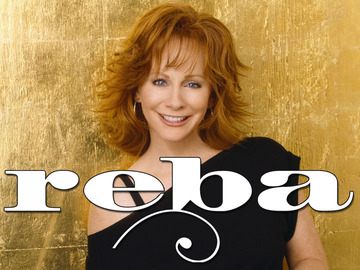
The fact that people continue to attempt casting Joanna García-Swisher in sitcoms underscores her talent in the genre.
Steve Howey, who has since excelled in Shameless, was a suitable fit for his role as the somewhat dimwitted “man of the house.” And, not to be overlooked, Reba herself brought a charming on-screen presence to the show.
Also Read: The Top Shows in WB and UPN History: 15-8
21. The Surreal Life (WB, 2003–2004) and 20. Beauty and the Geek (WB, 2005–2006): In due course, both of these reality shows fell victim to excessive production and the influence of other networks, making it somewhat challenging to recall their initial awesomeness during their debut seasons on The WB.
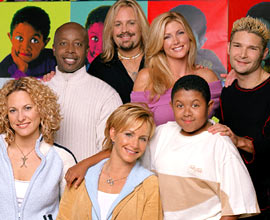
The Surreal Life first benefitted from an exceptional cast and an era when fallen celebrities didn’t have the means of Twitter or TMZ to sustain their relevance, rendering them less self-aware.
Corey Haim’s presence on the show provided moments of fascination and occasionally even intense discomfort for the viewers.
Although the premise of Beauty and the Geek is fundamentally lighthearted and superficial, that inaugural year appeared somewhat unique during its time.
It also graced the screens early in the contemporary reality TV era, a period when not everyone in the cast participated solely to become a minor reality show figure.
19. Jake 2.0 (UPN, 2003–2004) and 18. Kevin Hill (UPN, 2004–2005): These are two distinct UPN series that I found quite enjoyable during their individual seasons on the air.
Jake 2.0 falls into that category of shows I tend to overlook until someone online sparks a discussion about it, revealing that there are those who regard it as one of the finest.
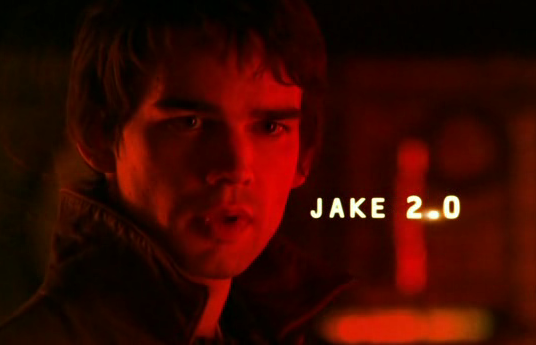
To put it simply, it was essentially what Chuck would become in the future, and while I relished the more overt humor in Chuck, I also admired Jake 2.0 for its more restrained yet still amusing approach to the tale of an analyst suddenly endowed with superhuman abilities.
The writing displayed a keen edge, and Christopher Gorham proved to be the perfect choice for the lead role in terms of the material.
Kevin Hill effectively harnessed Taye Diggs’s talents better than any other show he’s been a part of, affording him the opportunity to showcase his often-underestimated acting skills without veering into excessively dramatic territory (hello, “Private Practice”).
The storyline, revolving around a single “dad” endeavoring to balance his domestic responsibilities with his career as a lawyer, not to mention his love life (a classic Taye Diggs touch), may not have been groundbreaking, but the show excelled in maintaining the significance of all aspects of the character’s life throughout its initial season.
Surprisingly, Kevin Hill presented a more mature and solid portrayal.
17. One Tree Hill (WB, 2003–2006): Feel free to crack as many jokes as you’d like—and believe me, I’ve had my share of laughs—but it’s challenging to overlook the genuine affection people hold for One Tree Hill.
I find it a bit of a problem when determining if I prefer this straightforward and sincere iteration of the show over the downright bonkers CW years, but one thing’s for sure: this version doesn’t subject us to some of Chad Michael Murray’s more peculiar hairstyles and does offer plenty of Bryan Greenberg strumming an acoustic guitar—two definite pluses.
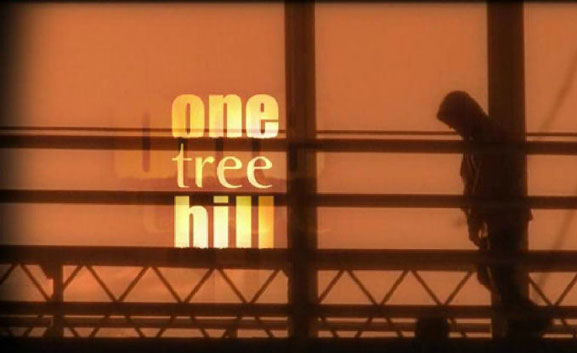
On a more serious note, “Hill” seamlessly filled the void left by Dawson’s Creek in The WB’s schedule, and though it never quite attained the same level of popularity or cultural impact as its Wilmington-based cousin, it managed to deliver a more consistent stream of entertainment.
Mostly through sheer absurdity, but entertaining nonetheless.
16. Jack and Bobby (WB, 2004–2005): Jack and Bobby stand out as one of the more impressive single-season shows in recent memory.
It successfully weaved together captivating tales of high school life and family drama while simultaneously endeavouring to construct a future-set political narrative.
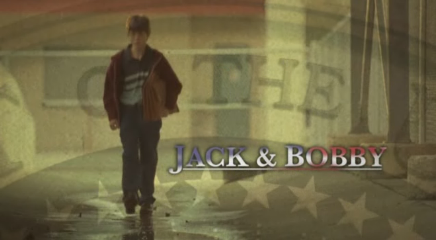
Whether it would have sustained this momentum in the long term is uncertain, but it undeniably thrived for 22 episodes.
Moreover, the series boasted a remarkable ensemble cast featuring Logan Lerman, Matt Long, Christine Lahti, John Slattery, Jessica Paré, and Bradley Cooper as core members.

